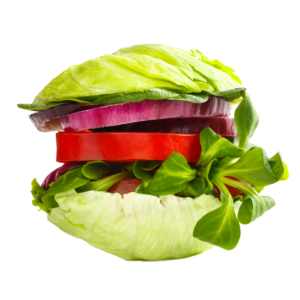Media & news

Where’s the Beef?
Apr 2, 2024
I first wrote about the environmentalist movement to eliminate or reduce the consumption of meat in the name of climate change back in 2017. My first article was titled, Big Mike’s Bean House, and was centered around a study promoted at the time that advocated substituting beans for meat to reduce carbon emissions. My comments included the thought that Andalusia’s own Big Mike’s Steak House would not be nearly as successful serving beans instead of their signature steaks.
I received notes and letters from readers after the article published asking if I was serious or stating I was just making up things about the climate change movement. I wrote a second article about a year later, Big Mike’s Bean House – Revisited, in which I covered additional studies and some employers, like WeWork, that were eliminating meat from company cafeterias and refusing to reimburse employees’ travel expenses for meat at meals. (WeWork is now bankrupt, not due to its dietary restrictions on employees but for extremely poor management decisions about things other than employee diets).
Six years later the climate movement and United Nations (U.N.) are at it again – not that they ever stopped. A U.N. report late last year reported global meat consumption resulted in 7 gigatons of carbon dioxide emissions – about the same as the total global carbon dioxide emissions from natural gas electric generation. The report also states livestock production accounts for 11% to 17% of total global greenhouse gas emissions and about 32% of global methane emissions, a natural by-product of cow digestion, which is 28 times more powerful in trapping heat in the atmosphere than carbon dioxide. The report further states that a cow produces about the same amount of carbon dioxide in a year as a gasoline-powered automobile.
Based upon that report, last November the U.N. supported a declaration passed at COP28, the U.N. 2023 Climate Conference, that states, “We affirm that agriculture and food systems must urgently adapt and transform in order to respond to the imperatives of climate change.” Yes, they are serious.
Efforts to curtail or tax meat or dairy production in some countries have encountered – and continue to encounter – headwinds. Late last year, New Zealand’s ruling government lost its majority due to a revolt by dairy farmers over higher land, livestock and fertilizer taxes. German and French farmers have been blocking traffic in the streets objecting to higher taxes on farm fuels and practices imposed in the name of climate change.
In the U.S., California regulations require dairy farmers to reduce methane emissions by 40% of 2013 levels by 2030. The regulations will effectively drive California’s dairy farmers out of business. The real goal of the regulations and taxes on livestock and dairy production is to raise costs and reduce supply of meat, just like the regulations being imposed on fossil fuels.
Evidence that the climate party has upped its game was apparent this week in New York. Attorney General, Letitia James, filed a lawsuit against JBS USA, the world’s largest beef producer, claiming JBS fraudulently misrepresented its carbon emissions by omitting the emissions of its suppliers.
The suit alleges that JBS USA’s claims to be “Net Zero” by 2040 are fraudulent, because JBS USA’s forecasts increasing demand for beef in the coming decades, and it plans to meet that demand with increased beef production. In short, JBS USA’s emission goals are inconsistent with its plan to increase meat production and, therefore, fraudulent. In support of its position to levy a heavy fine on JBS USA, Ms. James states, “Beef has the highest total greenhouse gas emissions of any major food commodity. Livestock production contributes about 32% of anthropogenic methane emissions each year.” The logical conclusion is that JBS is a bad actor that produces meat, increases carbon dioxide and methane emissions, and should be punished.
To be clear, JBS has no requirement to report its greenhouse gas emissions, nor the emissions of any of its suppliers. Also, it is under no mandate to control or reduce greenhouse gas emissions.
The purpose of the lawsuit (which was brought under the same statute under which Ms. James recently received a judgment against Donald Trump in the sum of $455 million for defrauding banks by inflating the value of his collateral) is to enrich the state of New York at the expense of people who eat beef, increase the cost of beef to the public, decrease the supply of beef available to the public, and just maybe, slightly reduce the amount of greenhouse gases released into the atmosphere.
This, like all government regulation, is a serious subject. The climate crowd is relentless in its obsession to increase costs and decrease supply of the two things essential for survival – cheap, reliable energy and the food that sustains us. If they have their way, the lady in the old Wendy’s commercial will be saying “Where’s the Beef? And, also, “Where’s the Heat?”
I hope you have a good month.